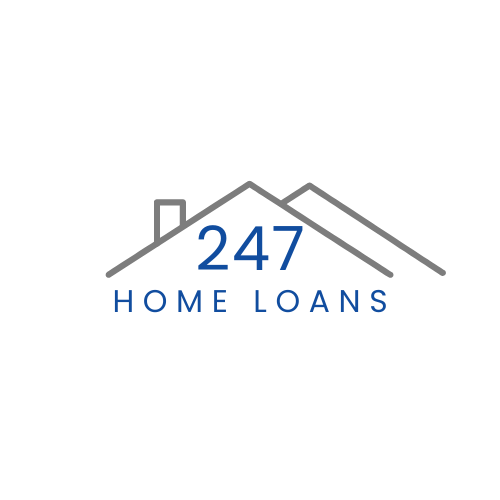If you are considering refinancing your mortgage, it’s important to first identify your specific goals.
If you are considering refinancing your mortgage, it’s important to first identify your specific goals. There are three common reasons for refinancing: to take cash out for other expenses, to get a lower payment, or to shorten the term of your mortgage.
Taking Cash Out
If you have equity built up in your home, refinancing is a great way to use this money. When you do a cash-out refinance, you are refinancing for an amount greater than what you currently owe on the loan, and get the difference in cash. The money you receive in this way isn’t taxed.
It’s common for homeowners to use cash from their home equity to pay off things like credit cards and student loans, which typically have higher interest rates than mortgages. Using cash from a refinance to consolidate or pay off such debts usually ends up saving a lot of money on interest, because mortgage interest rates are almost always lower than the rates on other types of debt. Also, interest paid on mortgages is tax-deductible, whereas interest on other types of debt usually isn’t. It’s also common to use cash from a refinance to pay for large expenses such as home improvements and education costs.
There are two common situations where it’s possible to take cash out with a refinance. If you’ve been paying on the loan long enough to build some equity, you may be able to refinance for cash up to that amount. If the value of your home has increased since you bought it, this additional value adds to your equity, which translates into your lender being able to give you more cash on a refinance.
Shorten the Term of Your Mortgage
You can save a lot of money on interest by shortening the term of your mortgage with a refinance. Shortening your term frequently means you’ll get a better interest rate. A lower interest rate and fewer years of mortgage payments can translate into significant savings on interest over the life of your loan.
Consider this example: If your loan amount is $250,000 and your interest rate is 4%, you’ll pay approximately $180,000 in interest over the life of a 30 year loan. On that same loan of $250,000 with a 3.5% interest rate paid over 15 years, you’ll pay only around $72,000 in interest over the life of the loan – saving over $100,000 on interest.
It’s important to realize that shortening the term of your mortgage will typically increase your monthly mortgage payment, so this option is best for those that can comfortably fit this increased monthly payment into their budget. By shortening the term of your loan, less of your payments will go to interest, and more will go towards paying down the principle of the loan – meaning you build equity faster.

How long do you need to own your home before refinancing?
Usually, you’ll need to own your home for at least a year before refinancing will provide a significant financial benefit.
What You Should Evaluate Before Refinancing?
Once you’ve got a clear goal in mind for your refinance, it’s time to take a look at your financial situation. You’ll want to evaluate four key factors: your monthly mortgage payments, your home’s value, your credit score, and your debt-to-income ratio.
Your Monthly Payments
Taking a close look at your monthly budget, and how your monthly mortgage payment fits into it, will help you consider your options. If you are planning to take cash out or shorten the term of your mortgage, you’ll want to look at how much higher of a monthly payment your budget can comfortably accommodate. If you are looking to lower your monthly payment, you’ll want to decide how much lower it would need to be to make a refinance worthwhile.
Your Home’s Value
Before you decide to refinance, you should do some research to get an idea of the current value of your home. Your lender can only lend you as much as the home is worth, so if your home appraises for less than you expect, it can cause trouble with refinancing. This can be particularly important if you are hoping to pull cash out or get rid of mortgage insurance.
The most accurate way to estimate the value of your home is to look at the sale prices of similar homes in your area. More recent sales will give a more accurate picture of the current market.
When you have a good idea of your home’s value, you can figure out approximately how much equity you have. Subtract the current balance remaining on your mortgage from the estimated value of the home – this will tell you what your equity is.
Your Credit Score
Knowing what your credit score is will help you understand what options for refinancing may be available to you. If your credit score has improved since you bought your home, this can help you get a better interest rate on your refinance. On the other hand, if your credit score has dropped, it can make refinancing more difficult.
Your Debt-to-Income Ratio
Debt-to-income ratio, or DTI, is the total of all of your monthly debt obligations divided by your gross monthly income. DTI is an important part of how lenders determine your ability to repay what you are borrowing on a loan.
If your mortgage payment is $1,400 and you have another $600 in monthly payments for things like car loans, student loans, and credit card debt, your total monthly debt obligation is $2,000. If your gross income per month is $5,000, you would have a DTI of 40%.
Generally, lenders require that you have a DTI of 50% or less, and the upper limit of DTI differs between different types of loans. If your DTI is too high, it can limit your refinance options, or potentially make you unable to refinance at all


Why Choose Us?
Our coordinated team can get your loan processed faster than the competition – guaranteed.
Our personable and extremely knowledgeable loan officers will walk you through your first home buying experience so smoothly, your worries will be left behind.
Licensing and Approvals
247HomeLoans.net holds a Florida Mortgage Brokers license number MBR1749, in the State of Florida. NMLSR ID #1082016. 247HomeLoans.net is a full-service Mortgage Broker. We are committed to providing the highest level of customer service with an emphasis on offering our customers the best advice to save on their monthly expenditures. We are set up with over 20 wholesale lenders and banks, so we can offer both traditional and nontraditional mortgage products. Even if you have been denied by traditional banks we may be able to help you secure financing.
Corporate Office is located at:
11256 Winthrop Main St.
Riverview, FL 33578
**DISCLAIMER: Please note that interest rates, APR’s, closing cost, and monthly payment examples on this page are for illustrative purposes so that borrowers can better understand how programs work. Consumers should note that mortgage rates, APR’s, and payments will likely vary from what is listed in the examples given. Mortgage rates change frequently and not all borrowers will be eligible. Additional restrictions may apply. Please call and speak with a 247 Home Loans mortgage representative for the most up-to-date information.
© 2024 247 Home Loans

